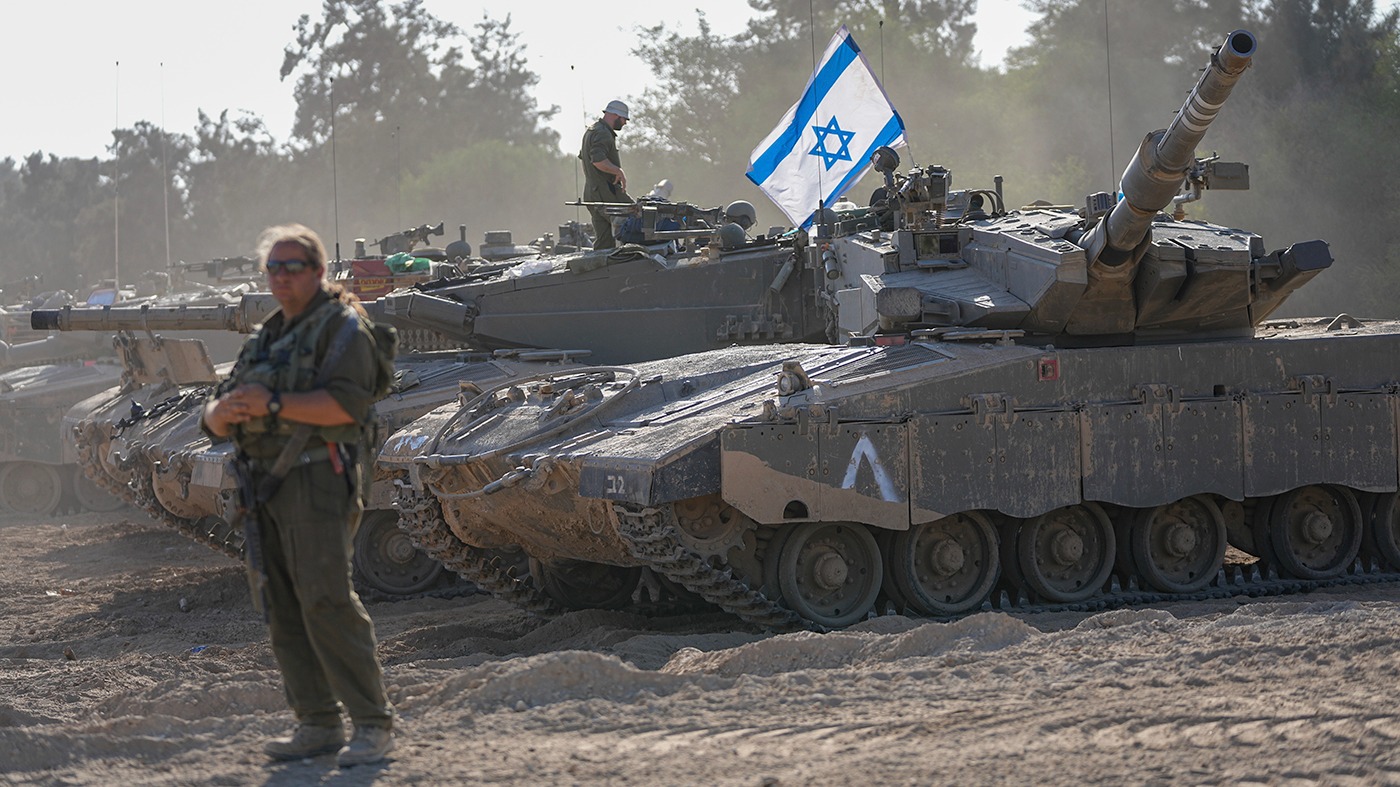The ongoing conflict between Israel and Hamas weighs heavily on the global conscience, stirring deep feelings of unease and concern. This complex situation, fraught with historical and cultural intricacies, often leaves observers from afar feeling overwhelmed and under-informed.
The experiences from a recent visit to Israel and Northern Gaza vividly illustrate the stark realities faced by those living despite conflict. The devastation in Kibbutz Be’eri, with homes and lives shattered, and the desolate, war-torn landscapes of Gaza underscore the human cost of enduring hostilities.
Such firsthand encounters are a humbling reminder of the profound disconnect between life in peaceful environments and the constant threat of annihilation others live under.
Israel-Hamas war (Credits: NDTV)
The increasing incidents of hostility towards Jews and pervasive antisemitism, particularly where criticism of Israeli policies crosses into discriminatory territory, highlight the challenges faced by Jewish communities worldwide.
The conflation of political criticism with ethnic or religious hatred serves only to deepen divisions and misunderstandings. In schools and public discourse, reducing complex international issues to simplistic “teams” trivializes the profound human suffering on all sides. This not only obscures the realities of the conflict but also perpetuates a cycle of misinformation and polarization.
The tendency to oversimplify or distort the conflict’s narrative does a disservice to all involved. It is essential to recognize the suffering of both Israelis and Palestinians and to maintain a balanced perspective that acknowledges the rights and humanity of all parties.
Israel-Hamas (Credits: Al Jazeera)
Efforts to foster understanding and dialogue are often overshadowed by loud, extreme voices that polarize and stigmatize. In such times, it is crucial for those who understand the nuances and the stakes to speak out against extremism and strive for a narrative that respects the situation’s turn.
Antisemitic rhetoric and actions, such as equating Zionism with inherent evil, exacerbate tensions and hinder progress toward understanding. It is imperative for community leaders and individuals alike to challenge such narratives and to promote a more informed, compassionate discourse.
The distressing realities of the Israeli-Palestinian conflict require a commitment to understanding, empathy, and an unwavering dedication to discerning the truth despite a sea of competing narratives. By embracing complexity and rejecting oversimplifications, we can hope to contribute to a more just and peaceful resolution.
